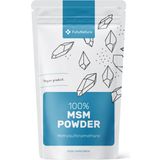Sports in Winter: Problematic?
Sports are a lot of fun, but can be hard to keep up when the temperatures reach their lows. To keep winter from raining on your parade, here are a few rules to keep in mind.
What kind of sports are suitable for winter?
Not all sports lend themselves to winter time. Quiet endurance sports with an even pace are best suited for temperatures around freezing. These sports are easier on your body because respiration is slower and somewhat easier, which relieves the lungs of excess strain. For this purpose, cross-country skiing, hiking, jogging and walking are suitable sports.
Avoid in winter sports with intense intervals or speed training.
If you like to ride your bike, keep in mind the wind chill effect. This is a very quick drop in the perceived temperatures. If it is minus 10 degrees, it can feel minus 30 degrees very quickly.
The right clothing makes all the difference
The key to staying healthy with physical activity in winter temperatures is choosing the appropriate clothing. Functional underwear should be worn to transport moisture away from the skin, keeping the body from cooling down too quickly.
The onion principle of wearing multiple layers should be observed. However, air circulation between the individual layers must be flowing. Otherwise, water vapor cannot escape and your clothes will get wet. Cotton is the worst fabric in this case because it stores fluid. The outermost layer should be windproof but still breathable.
Do not wear too many layers, otherwise you'll get too hot. If you feel a little chilly at the beginning of training, you probably dressed appropriately.
Since it gets dark very early in winter, reflectors and a head lamp or torch are a good idea to take with you. This lets other motorists or people know you are there.
Be sure to wear a hat and gloves (again breathable). Approximately 40 percent of the body's heat is lost through the head. If the snow or the sun is shining, a pair of sunglasses is worth considering. This will keep the glare and the cold wind out of your eyes and keep any temperature caused tears out of your eyes.
If you are cycling, consider wearing overshoes.
It comes down to breathing properly
The colder the air, the more important proper breathing is. Otherwise, the mucous membranes cool down and dry out.
Breathe in through your nose so that the air is heated, moistened and filtered (for bacteria and dirt). This also makes for a smaller burden on the lungs. Breathe out through your mouth.
If the weather is minus 10 degrees or less, a cloth or the like should be wrapped around the mouth as additional protection.
From minus 20 degrees Celsius on, the international cross-country race will be canceled. At this temperature, the air is so cold, that it can not be heated sufficiently by your body. This creates an extreme burden on your lungs. Shift your sports at such temperatures indoors, it won't do you any good to be outside.
Warm up properly or reduce your training time
In winter, it is extremely important to warm up properly before exercise. Because of the cold, the body needs much more time to warm up, increasing the risk of injury.
Even if you are warmed up, you should not start out too fast.
Since the body catches cold very quickly in winter, you should not work out too long. It is better to go exercise more often, but for shorter intervals.
After training
Most importantly, change into dry clothes immediately after exercising. It is better to spend 20 seconds shirtless in the cold than 15 minutes in wet clothes in the car. Wetness attracts colds.
Stretch in warm areas, at best at home. Nothing is worse than standing around in the cold with sweaty clothes.
Drink a lot
Before and after exercise, do not forget to drink enough. In winter we feel less thirsty, but we still need sufficient liquids.
Latest reviews
-
 4.9 (9)
4.9 (9)Alnatura Organic Beetroot Juice, 1 l
Bestseller- Juice from organic beets
- Naturland quality
- Vegan
€ 2,49 (€ 2,49 / l)Delivery by February 24
-
 5.0 (1)
5.0 (1)FutuNatura MSM Powder, 250 g
- The beauty mineral
- Organic sulfur compound
- Also ideal for sports
€ 10,99 (€ 43,96 / kg)Delivery by February 24
-
 5.0 (1)
5.0 (1)tetesept Iron + B12 + C + Folic Acid, 30 tablets
- 1 tablet daily
- Ideal for everyday support
- Gluten and lactose-free
€ 3,69 (€ 410,00 / kg)Delivery by February 24
-
 5.0 (4)
5.0 (4)Nature Love Coenzyme Q10, 60 capsules
- From plant fermentation
- One pack contains a 2-month supply
- Vegan
€ 22,99 (€ 469,18 / kg)Delivery by February 24
